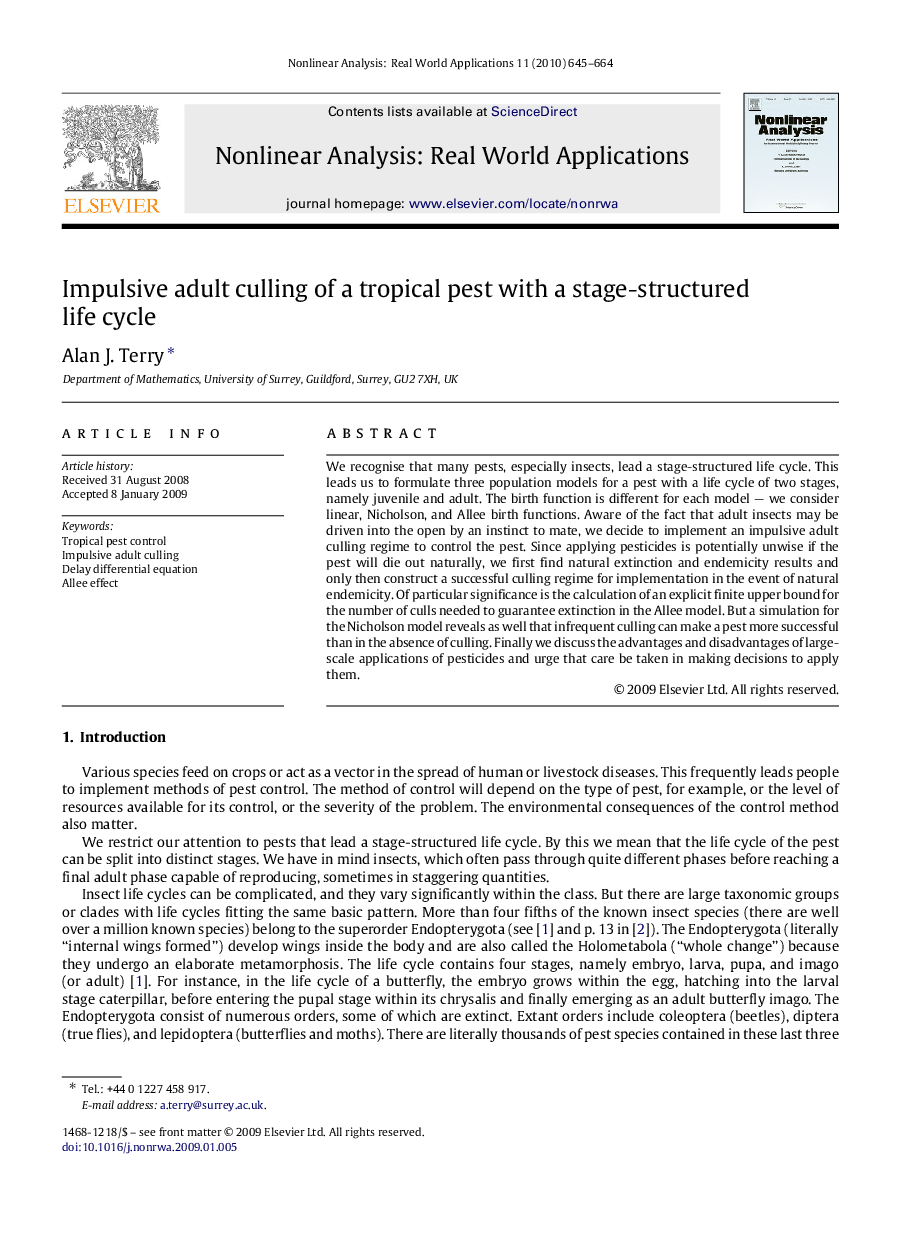| کد مقاله | کد نشریه | سال انتشار | مقاله انگلیسی | نسخه تمام متن |
|---|---|---|---|---|
| 838189 | 908356 | 2010 | 20 صفحه PDF | دانلود رایگان |

We recognise that many pests, especially insects, lead a stage-structured life cycle. This leads us to formulate three population models for a pest with a life cycle of two stages, namely juvenile and adult. The birth function is different for each model — we consider linear, Nicholson, and Allee birth functions. Aware of the fact that adult insects may be driven into the open by an instinct to mate, we decide to implement an impulsive adult culling regime to control the pest. Since applying pesticides is potentially unwise if the pest will die out naturally, we first find natural extinction and endemicity results and only then construct a successful culling regime for implementation in the event of natural endemicity. Of particular significance is the calculation of an explicit finite upper bound for the number of culls needed to guarantee extinction in the Allee model. But a simulation for the Nicholson model reveals as well that infrequent culling can make a pest more successful than in the absence of culling. Finally we discuss the advantages and disadvantages of large-scale applications of pesticides and urge that care be taken in making decisions to apply them.
Journal: Nonlinear Analysis: Real World Applications - Volume 11, Issue 2, April 2010, Pages 645–664